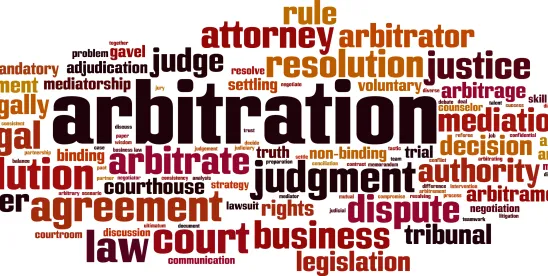As discussed in a prior article, Nevada’s Assembly Bill 3 would increase the jurisdictional cap for the state’s court-annexed arbitration program from $50,000 to $100,000. The cap was last adjusted in 2005, and inflation has reduced the number of cases that are submitted to the program. Now, the plaintiff-oriented Nevada Justice Association (NJA) has proposed an amendment to the bill.
AB 3’s original text simply amended NRS 38.250, changing the $50,000 limit to $100,000. The NJA’s amendment goes far beyond that that scope:
- It attempts to overrule Nevada Arbitration Rule 16(e). The rule currently caps the attorneys’ fees recoverable in an arbitration at $3,000. NJA’s amendment would increase that to $15,000.
- It attempts to expand NAR 5(a)’s list of automatically exempted cases.
- It proposes deleting NRS 38.359’s requirement that the arbitrator’s non-binding award be presented to a jury in a subsequent trial.
- It proposes limiting short-trial cases to those where the arbitration award is $50,000 or less. If the arbitration award is $50,000 or more and trial de novo is requested, then the case would be removed to the standard district court process.
These changes may be an attempt to circumvent the Supreme Court’s rulemaking process, as NJA attempted with NRS 52.380 and NRS 629.620. On March 24, 2022, the Supreme Court of Nevada created a committee to Study the Rules Governing Alternative Dispute Resolution and Nevada Short Trial Rules under ADKT 0595. A 10-member committee was formed to review the rules.
The order appointing the Committee included three personal injury lawyers, two of whom are NJA board members. The Committee studied the rules and filed a report that made various recommendations. The suggested changes did not include the cap on attorneys’ fees and did not create a two-tier short trial program, but did expand the list of automatically exempt cases. The Supreme Court adopted the proposed amendments in an order filed October 26, 2022.
The Supreme Court studied the arbitration program and revised the rules to facilitate a better program for all participants. Notably, it could have:
- Raised the fee cap in NAR 16(e), but chose not to.
- Expanded the list of automatically exempt cases, but chose not to.
- Created a two-tier trial de novo process, but chose not to.
Conclusion
As amended, parts of AB 3 may be unconstitutional for the same reasons discussed in Lyft v. Dist. Ct. Further, by creating a two-tier trial de novo process, the amended AB 3 is inconsistent. Thus far there is no explanation for why the nonbinding arbitration program is appropriate for cases up to $100,000 but the short-trial program is good only for cases up to $50,000. If the program’s goal is to conserve judicial resources by directing cases away from the district court, then a two-tier trial de novo program does not contribute to that goal.



 />i
/>i

